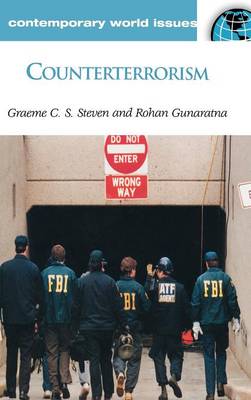Contemporary World Issues
1 total work
An up-to-date analysis of the wave of terrorism in the post-Cold War era and the ways in which states and societies are responding.
Counter-Terrorism: A Reference Handbook outlines the threat of terrorism and ways to combat it. Written by two expert insiders in the field, this extensive examination surveys a wide range of diverse terrorist groups from the Provisional Irish Republican Army (PIRA) to Al Qaeda. It shows how key trends and patterns in domestic and international terrorism such as suicide bombings require counter strategies and tactics including surveillance and reconnaissance.
Case studies of terrorist organizations in Europe, Asia, Africa, Latin America, the Balkans, and the Caucasus, and profiles of terrorists like Khalid Sheikh Mohommad, alias Mokhtar (The Brain), who masterminded the Al Qaeda attack on 9/11, illustrate the growing network of groups and leaders harnessing the forces of globalization. Finally, the authors suggest lthat no single state can act effectively on its own to confront terrorism--instead, a wide range of strategies needs to be adopted by all.
- Chronology of key events such as the 2001 bombing in Bali, movements such as the globalization of terrorism, and legislation by the United Nations, the United States, and other countries
- Biographies of significant individuals such as Khalid Sheikh Mohammed, Osama bin Laden, and Ayman Al Zawahiri
